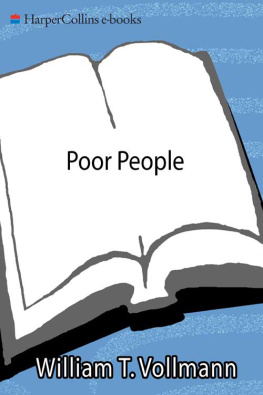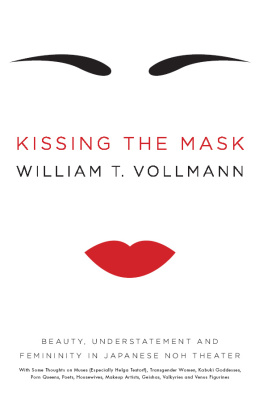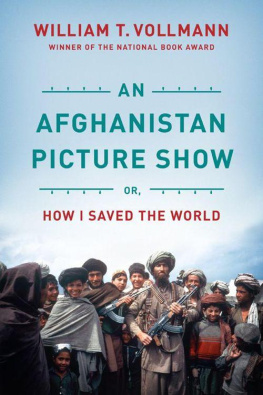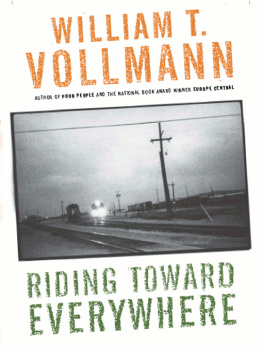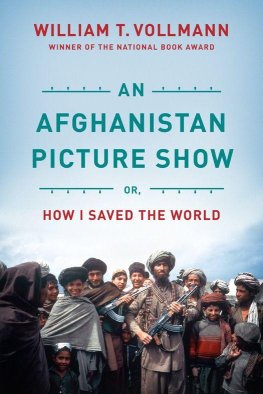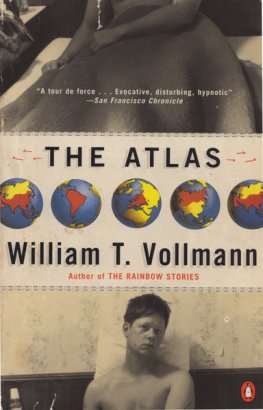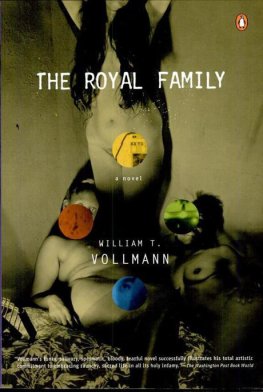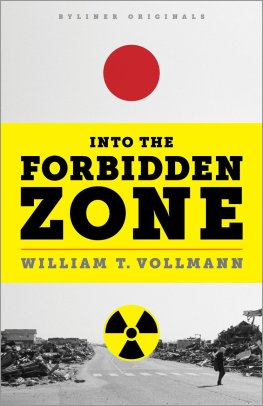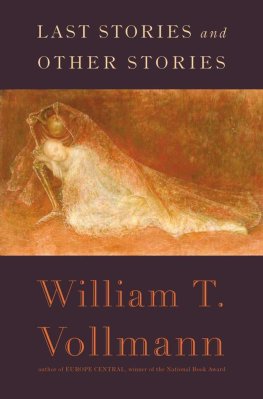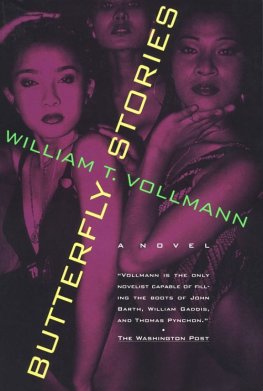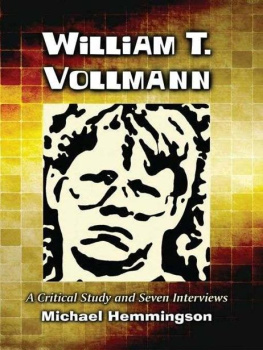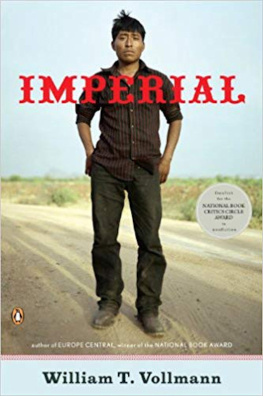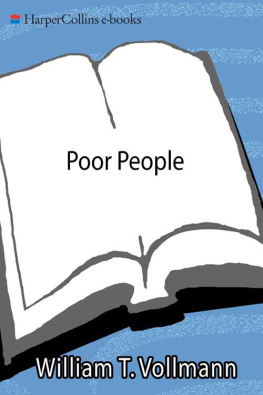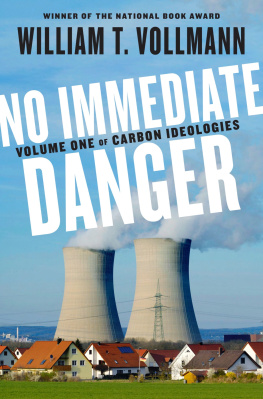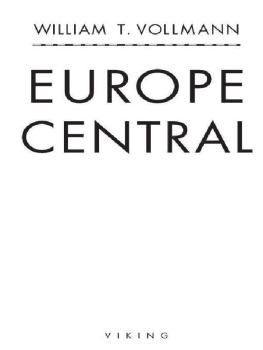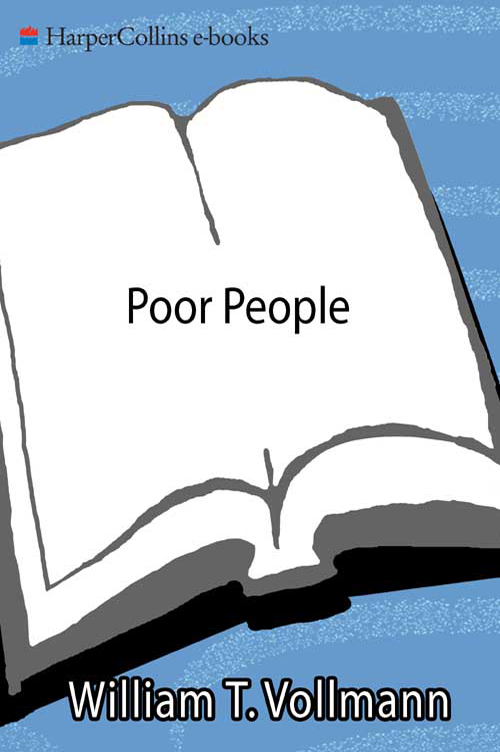WILLIAM T. VOLLMANN
This book is dedicated to my interpreters, without whom I would have remained more deaf and ignorant than is already the case. Because I sought to give my interviewees center stage, and even so could not avoid distracting you with various interpretations and misunderstandings of them, the interpreters presences got suppressed wherever possible. Only where their own reactions illuminated the poor people themselves did I leave them in the picture. I am grateful to each and every one of them. Their patience, in many cases their bravery, and above all their local knowledge made this book possible.
CONTENTS
(Thailand, 2001)
(Yemen, 2002; USA, 1846, 200105;
Colombia, 1999; Mexico, 2005; Japan, 200405;
Vietnam, 2003; Afghanistan and Pakistan, 2000)
(Russia, 2005)
(China, 2002)
(Japan, 200405)
(Afghanistan, 2000; Yemen, 2002; Burma, 1994;
USA, 2005 and 2000; Vietnam, 2003; Hungary, 1998;
Pakistan, 2000)
(Japan, 2004; Russia, 2005; Thailand, 2001)
(India, 1979; USA, 1920s40s; Thailand, 2001)
(Colombia, 1999; Virginia and England, 1700s)
(Iraq, 1998; Serbia, 1994;
Australia, 1994; USA, 1999; Colombia, 1999; USA, 1820s;
France, 1754; Ireland, 1889; Republic of Congo, 2001)
(Thailand, 2001; Serbia, 1998; Russia, 2005)
(Bosnia, 1994; Scotland, 1700s; Mexico, 2005;
USA, 1999; Thailand, 2001; Pakistan, 2000;
Russia, 2005)
(USA, 1998; Ireland, 1848; Russia, 2005;
Philippines, 1949; Bosnia, 1992; Syria, 1968;
Kenya, 1972; Mexico, 2005; Colombia, 19992000;
Thailand, 2001)
(USA, 1993, 2005; Japan, 2000; Philippines, 1995)
(Kazakhstan, 2000)
(Japan, 2001)
(1997)
(Philippines, 1995)
(Everywhere)
(Kenya and USA, 1992, 1996)
(USA, 2005)
(??)
(Japan, 2005)
1
Recently I finished writing a longish book about violence. I wanted it to be theoretically completethat is, capable of judging the multifarious but nonetheless finite categories of excuses for violence.
This essay about poor people was written in a different spiritneither to explicate poverty according to some system, nor to erect a companion monument to Das Kapital in the cemetery of hollowed-out thoughts. I certainly felt inadequate to sustain a meditation on any specific incarnation of poverty, as was so passionately attempted in Let Us Now Praise Famous Men. I say attempted, for even that masterpiece repeatedly expresses its own insufficiency, and above all and therefore, its guilt.
I can fairly state that I have studied, witnessed and occasionally been a victim of violence. I cannot claim to have been poor. My emotion concerning this is not guilt at all, but simple gratitude. Jack London and George Orwell both lived the poor life, but they managed to give us The People of the Abyss and Down and Out in Paris and London precisely because they escaped that state. Good books do arise out of poverty and its memoryfor instance, the unjustly forgotten Manchild in the Promised Land. Masterpieces have been written by those who renounced worldly things (Christian monks, Buddhist hermit-sages), or by individuals fallen into comparative impoverishment, such as Ovid in his exile. But how many of these latter address lifelong involuntary poverty? The Grapes of Wrath, which is one of the best books about poor people I have ever read, and which surely owes something to Steinbecks poorish origins, succeeds thanks to a combination of the authors great-hearted empathy, his visits with its Okie subjects, his education and, not least, the leisure for writing and thinking that he was able to buy.
2
This point is so obvious as to demand restatement:
Let Us Now Praise Famous Men is an elitist expression of egalitarian longings. The tragic tension between its goal and its means contributes substantially to its greatness. Its Communist sympathies, expressed, I am sad to say, in the midst of the Stalinist show trials, expose its naivet, without which that greatness would not exist; for despite its fierce intellectualism it is essentially an outcry of childlike love, the love which impels a child to embrace a strangers legs. What can the stranger do, but smilingly stroke the childs head? Few of its subjects could have read, let alone written it. James Agee sought to know them, to experience, however modestly, what they did; his heart went out to them, and he fought with all his crafty, hopelessly unrequitable passion to make our hearts do the same. This explains the necessity for Walker Evanss accompanying photographs, which record the poverty of those sharecropper families calmly, undeniably, heartbreakingly, inescapably. Their project falls repeatedly on its sword. It is a success because it fails. It fails because it consists of two richmay be approachable, but the stranger himself in his immensity stands too tall and far off in poverty to be ascertained in the easy way that our observers can see each other. Had this easiness existed in the portrayal of the books subject, it would have been patronizing. Accordingly, Agee carries his sincerity to the point of self-loathing, and Evans escapes into the tell-all taciturnity of photography. A picture is worth a thousand words, no doubt, but which thousand? Is your caption the same as mine? A poor man stares out at you from a page. You will never meet him. Is he grim, threatening, sad, repulsive, determined, worn down, unbowed, proud, all of the above? What can you truly come to know about him from his face? As for the photographer, he need not commit himself.
Agee does commit himself. He wants us to feel and smell everything that his subjects have to, and comes as close to accomplishing this as it is possible to do using the sole means of an alphabet; so he fails, despising himself and us that it must be so, apologizing to the families in an abstruse gorgeousness of abasement that only the rich will have time to understandand of these, how many possess the desire? For to read Let Us Now Praise Famous Men is to be slapped in the face.
The Grapes of Wrath is a more populist work. Okies have read it indeed, and achieved the painful pleasure of seeing themselves. But the novels beauties of effect required their own hours of toil to create. Although the migrants in the California camps might have lived through hours of nothing to do, their idleness never equaled leisure: Worry, malnutrition, crowdedness, illiteracy and kindred damage, all inflicted by poverty, made it no accident (as a Marxist would say, but never in this context) that this most powerful work ever written about Okies was not written by an Okie.
I do not wish to experience poverty, for that would require fear and hopelessness. Therefore, I can glimpse it only from the outside. This essay is not written for poor people, or for anyone in particular. All that I dare to do is to note several similarities and differences which I believe pertain to the experience of being poor. I began by asking a few of my fellow human beings:

